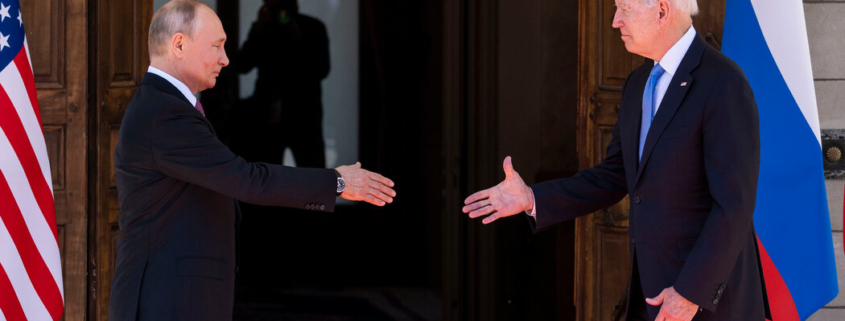Biden Warns a ‘Real Shooting War’ Could Come From Cyber Breach
President Joe Biden told U.S. intelligence officials on Tuesday that he thinks a cyber breach could lead to a “shooting war” with a major global power.
“I think it’s more likely we’re going to end up—if we end up in a war, a real shooting war, with a major power—it’s going to be as a consequence of a cyber breach of great consequence,” Biden said during a visit to the Office of the Direct of National Intelligence, according to a recording of his visit.
Biden did not clarify how the U.S. measures a breach “of great consequence,” but his remarks come after a series of Russian ransomware attacks and other cyberattacks have hit U.S. government and private sector entities. The American public has become intimately familiar with how ransomware attacks, especially those against a pipeline operator and meat supplier in recent months, can cause disruptions in Americans’ day-to-day lives.
“We’ve seen how cyberthreats including ransomware attacks increasingly are able to cause damage and disruption in the real world,” Biden told the approximately 120 ODNI staff in attendance.
The U.S. has long taken actions to retaliate against cyberattacks that have pummeled U.S. entities in recent years. It has sanctioned individuals it says are linked with attacks, indicted some, and called out different foreign government entities, such as China’s counterintelligence agency, the Ministry of State Security, for its involvement in cyberattacks. Cyber Command has worked to disrupt Russian government-linked hackers that sought to intervene in U.S. elections in recent years by sending them direct messages and interrupting their internet access.
And while Biden has said in recent months that he wouldn’t rule out a retaliatory cyberattack in response to one targeting U.S. entities, his remarks raised the specter that the U.S., or another adversary, might escalate its responses to cyberattacks in the future.
Sen. Angus King (I-ME), a member of the Senate Intelligence Committee, echoed Biden’s concerns in comments to The Daily Beast.
“I think what it means is he understands that a cyberattack can be easily as destructive if not more so than a dropping of a missile or a bomb and…



